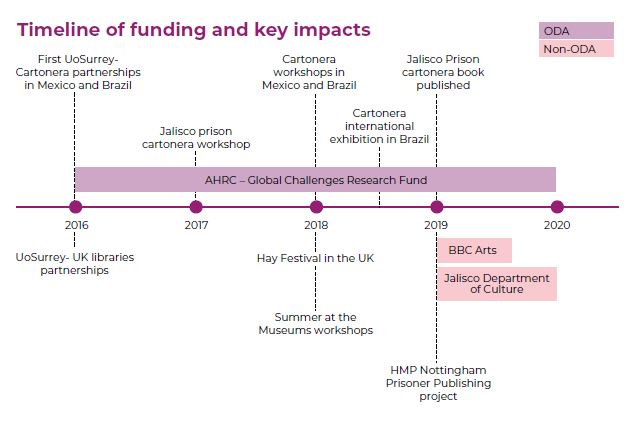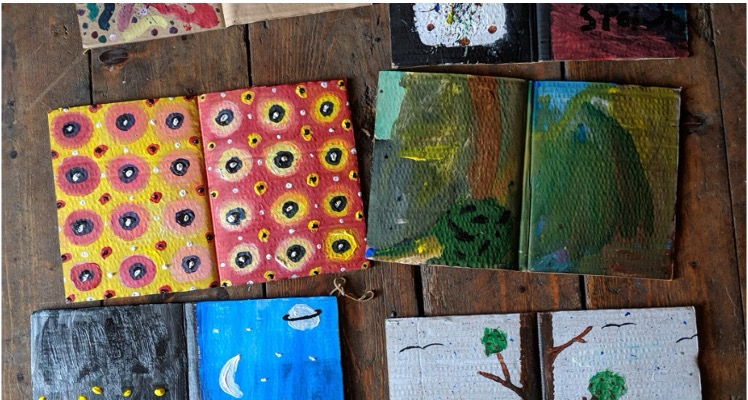How the Cartonera Publishing Project empowered vulnerable communities in Latin America and the UK
| Leading University | University of Surrey |
| Location of impact | Brazil, Mexico, UK |
| Thematic focus | Language, literature, art, and anthropology |
| Funders | In Mexico: Jalisco Department of Culture. In the UK: Arts and Humanities Research Council (AHRC), BBC Arts |
| Partners | In Brazil: Catapoesia, Dulcinéia Catadora (Cartonera organisations). In Mexico: La Rueda Cartonera, Ministry of Culture Jalisco (government), Viento Cartonero (Cartonera organisation). In the UK: British Library, Cambridge University Library, Koestler Arts (prison-based arts charity), Senate House Library |
Case study summary
Publishing practices in Latin America have been revolutionised by the Cartonera Publishing Project (CPP). This project is sustained by a community of academics and practitioners aiming to enable social transformation by making visible the stories of vulnerable communities. This project was inspired by the first Cartonera organisation which began in Argentina when waste-pickers (cartoneros) started saving cardboard and self-organising to turn these discarded materials into books. Drawing from this method, CPP was born as a collaboration between University of Surrey researchers, UK library archivists, and Latin American writers and artists. Between 2016 and 2020, Cartonera workshops inspired over 1,000 participants, including rural, indigenous, homeless, and incarcerated groups to collectively write and publish their life stories. Reflecting on issues of poverty, social exclusion, and inequality, these arts-based workshops have nourished participants’ creativity and fostered social cohesion. By adapting and implementing the Cartonera method in Brazil and Mexico, the CPP has influenced social, cultural, and publishing practices in different communities. In the UK, the Cartonera movement has shifted library practices, supported the empowerment of local groups, and inspired social education changes.
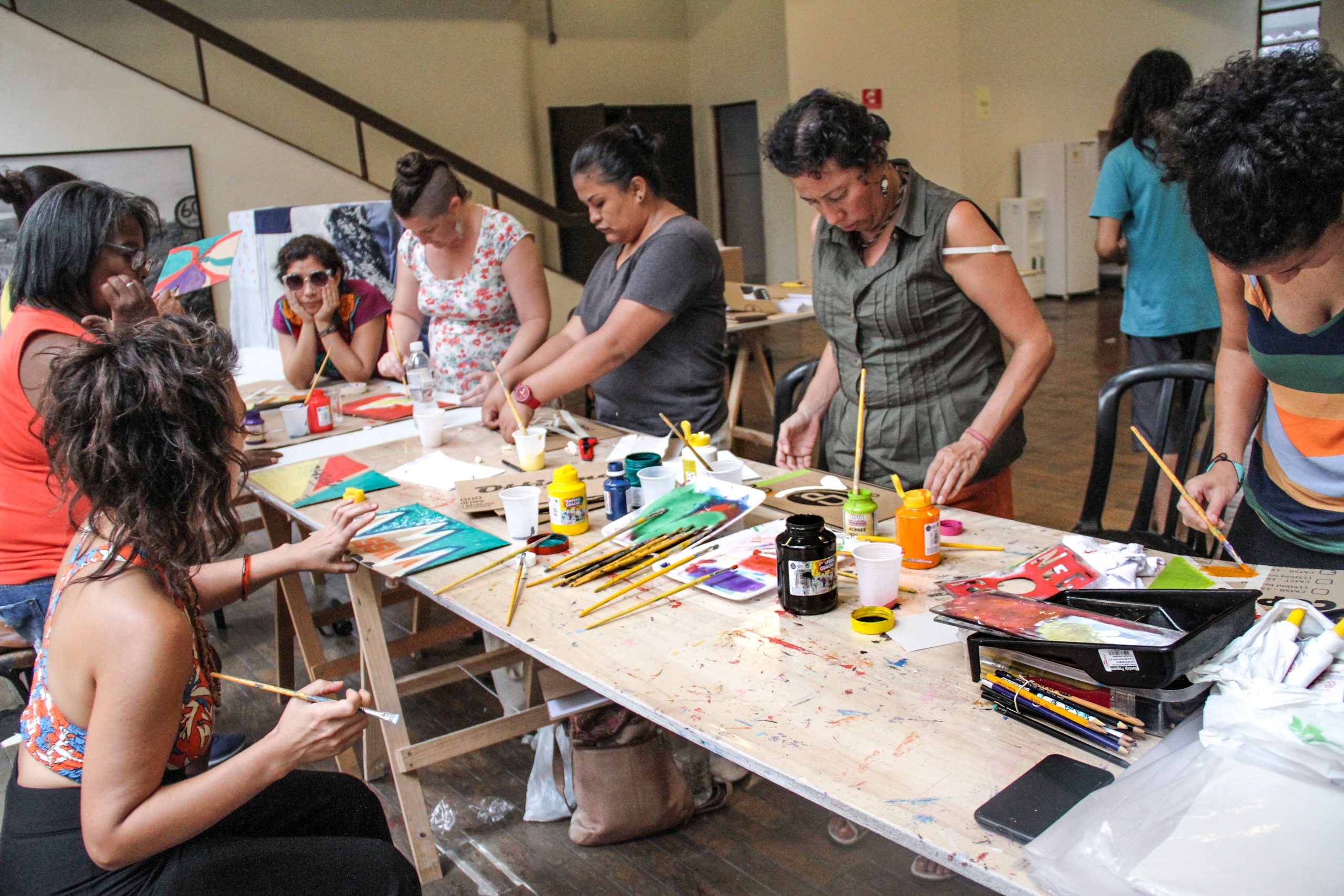
Primary benefits in Mexico and Brazil
Empowering incarcerated women through storytelling
In 2017, women in a Jalisco Prison (Mexico) joined Cartonera workshops and subsequently co-authored and published Espejo y Viento, a Cartonera book about their experiences in jail and the events that led to their incarceration. Sharing their stories helped challenge myths and stigma, enhancing their leadership and resilience.
Enhancing local community bonds
In Zacatecas (Mexico) and Gouveia (Brazil), CPP-inspired book-making workshops fostered dialogues on local knowledge (e.g., on uses of plants) and social issues. The workshops also helped these communities earn more money from selling the Cartonera books.
Highlighting social inequality
In São Paulo (Brazil), the Dulcinéia Catadora Cartonera team co-designed a new intervention with 18 homeless people and housing activists. Through the collective book-making process of a book entitled Mutirão (Task Force), the initiative exposed issues of urban homelessness, decent housing, and inequality.
Showcasing innovative publishing practices
CPP highlighted alternative knowledge production and innovative publishing practices by hosting, from October 2018 to February 2019, the largest international Cartoneraexhibition in São Paulo, Brazil.
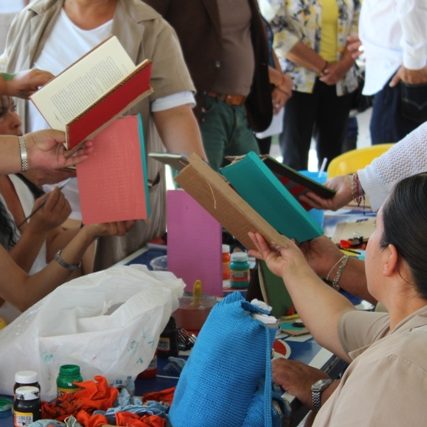
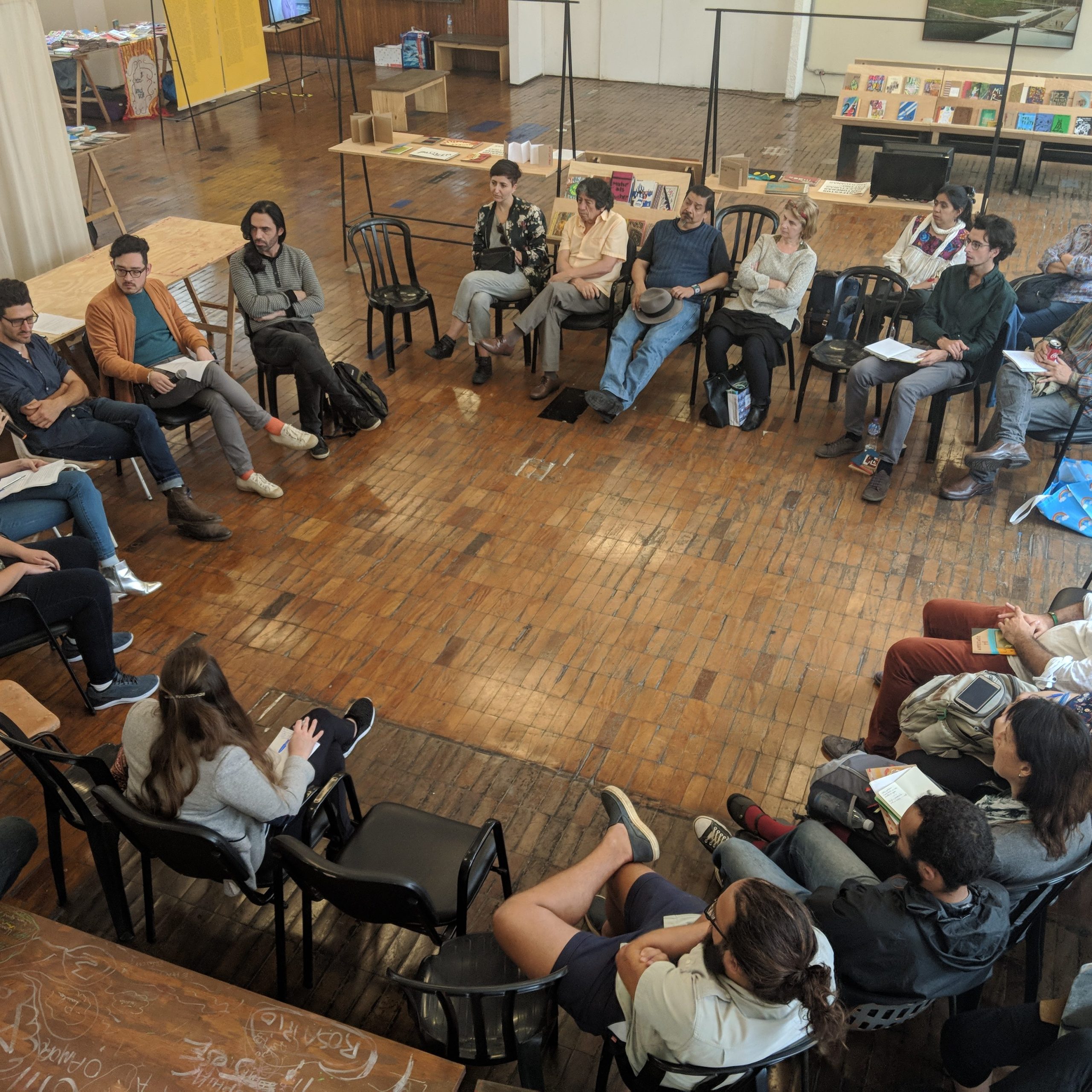
Secondary benefits for the UK and globally
Expanding Cartonera collections through partnerships
The CPP partnerships between researchs and Cartonera leaders enabled the expansion of the Cartonera book collection at Cambridge University Library. In turn, this inspired the library to update its cataloguing practices to include all contributors (e.g., book cover artists) and add Spanish and Portuguese index keywords in bibliographic records. Promopted by its CPP experience, the library opened its doors to new audiences, including children, through ‘Summer at the Museums’ workshops.
Capacity building through arts-based interventions
Inspired by CPP’s experience in Mexican prisons, arts-based social interventions were successfully implemented in UK prisons HMP Nottingham and HMP Downview. The Prisoner Publishing project, piloted in 2019 in HMP Nottingham, helped participants improve their literacy and communication skills. Their experience was featured in a BBC Arts episode in 2020.
Prompting young people’s engagement with sustainability and migration issues
Interactive Cartonera workshops for London-based Latin American teenaged migrants prompted participants to reflect on their experience as migrants and their role in addressing the SDGs.
Fostering participative research and decolonising literature
CPP’s success encouraged the Universities of Surrey and Durham to create new modules and teaching tools on participative research methodologies and decolonising literature practices.
How secondary benefits unfolded
- Partnerships with the British Library, Senate House Library, and Cambridge University Library helped grow the UK’s Cartonera collection. In addition to giving UK readers access to Latin American books, the collection has helped encourage people to rethink waste generation, knowledge production, and traditional practices in the publishing industry.
- CPP inspired spin-off events and interactive workshops led by the research team and partners at the Hay Festival 2018, the London Cartonera Festival (2019), the Migration Museum, and several initiatives in various UK prisons and schools.
- Teenagers and community groups in London were galvanised to organise their own Cartonera workshops thanks to easy-to-access online CPP resources, affordable materials, and their hands-on learning experiences in previous interactive workshops.
